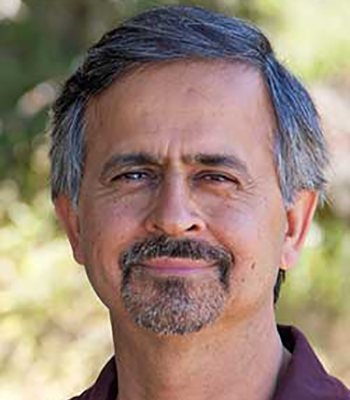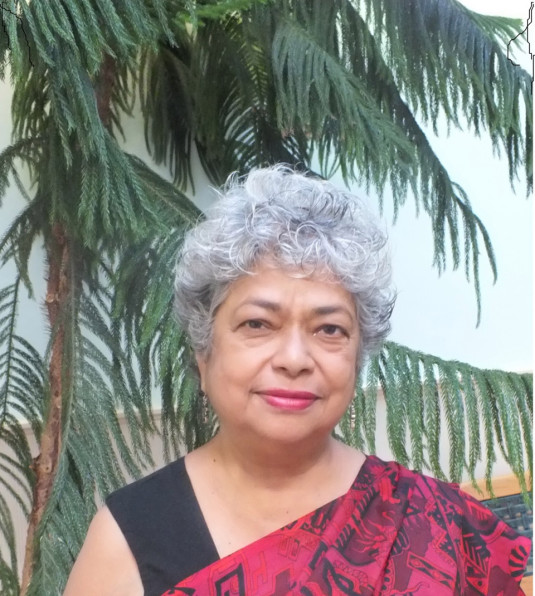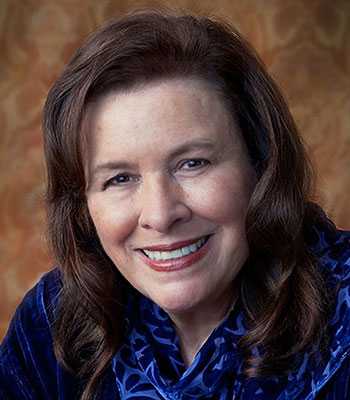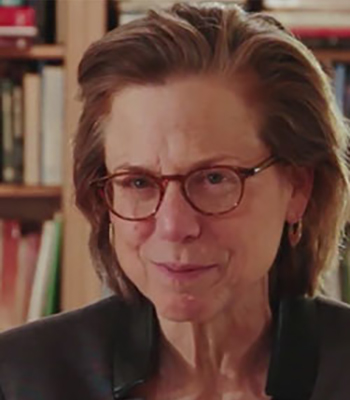A Seven-Week Online Course
Leadership is an inherent dimension of human collective life. The technical, dynamic, and social complexity of contemporary life calls for distinct capabilities of leadership, some unprecedented. The force of the future that drives complexity in modern and postmodern societies requires that leadership be effective in supporting the structural transformation of social institutions.
This course provides an overview of transformative leadership as practiced in domains such as business, law, governance, education, and politics. In addition, transformative leadership is practiced at system-levels in teams, organizations, and societies. Topics and approaches to transformative leadership explored in this course include presencing, imagination, learning, beauty, emergence, design, culture, conflict, scaling, and political development.
Course Faculty

Aftab Omer
Aftab Omer, PhD is a sociologist, psychologist, futurist and the president of Meridian University. Raised in Pakistan, India, Hawaii, and Turkey, he was educated at the universities of M.I.T, Harvard and Brandeis. His publications have addressed the topics of transformative learning, cultural leadership, generative entrepreneurship and the power of imagination. His work includes assisting organizations in tapping the creative potentials of conflict, diversity, and complexity. Formerly the president of the Council for Humanistic and Transpersonal Psychologies, he is a Fellow of the International Futures Forum and the World Academy of Arts and Sciences.
Contributing Faculty

Monica Sharma
Dr. Monica Sharma, trained as a physician and epidemiologist, worked for the United Nations since 1988 for 22 years. She has published and presented over 250 articles in journals and international forums. Currently, she engages worldwide as an International Expert and Practitioner on Leadership Development for sustainable and equitable change. She works with the United Nations, universities, management institutions, governments, business, media and community organizations. She is the Tata Chair Professor at the Tata Institute of Social Sciences in Mumbai.
In 2009, Monica Sharma received "The Spirit of the United Nations Award, given to a person whose work is an expression of the core principles, spirit and vision on which the United Nations was founded. Monica Sharma was honored because of her inspirational leadership, skilled wisdom and devoted attention to the United Nations, for guidance in developing effective strategic frameworks for action for application world-wide that has manifested in effective programs and leadership development initiatives. Monica Sharma also received the prestigious Sigma Theta Tau International (STTI) 2009 Honorary Membership Award, for her contribution in fostering transformational leadership world-wide resulting in measurable change and for her strategic work with the Nightingale Initiative for Global Health (NIGH) related to nursing and health care.

Jean Houston
The Chancellor of Meridian University, Dr. Houston is a visionary researcher who has authored nearly 30 books and worked intensively in over 40 cultures, lectured in over 100 countries, and worked with major organizations such as UNICEF and NASA. Dr. Houston has developed a worldwide network of leaders including Joseph Campbell, Margaret Mead, Buckminster Fuller, Jonas Salk, US presidents Jimmy Carter and Bill Clinton, as well as US Secretary of State Hillary Clinton, giving her unique insight into the human potential. Dr. Houston's book, A Passion for the Possible, was an expansive compliment to her inspiring PBS special of the same name. Dr. Houston has served on the faculties of Columbia University, Hunter College, Marymount College, The New School for Social Research, and the University of California. She holds doctoral degrees in both psychology and religion. Since 2002, Dr. Houston has been working with the United Nations Development Program, training leaders in developing cultures throughout the world in the field of Social Artistry.

Melissa Schwartz
Melissa Schwartz, PhD is the Chief Academic Officer at Meridian University where she guides integrally-oriented programs in Education, Business, and Psychology. The Director of Meridian’s Center for Transformative Learning, Melissa is dually licensed as both a psychologist and as a Marriage and Family Therapist (MFT). She serves as a reviewer for the American Psychological Association’s Journal, Psychology of Women Quarterly, and the California Psychological Association’s Office of Professional Development. As well, she serves as a Subject Matter Expert for California’s Board of Behavioral Sciences in the continual development of the state’s MFT licensure examination. Melissa’s research interests are in the areas of adult development, the psychology of women, integral transformative assessment, and the role of culture in transformative learning.
Special Interest Groups
In addition to the six, 75-minute course video calls with faculty and participants, this course includes _Special Interest Groups_, formed at the outset of the course, which meet weekly -- enabling participants to network, collaborate, and develop communities of practice.
A distinct approach to collective intelligence and collaborative inquiry will be offered to guide the Special Interest Groups.
Course Modules
Week One
Presencing: The Power of Awareness and Stillnesss
- Integral Consciousness and Social Fields
- Myth and the Presence of the Past
- Symbols and the Presence of the Future
Week Two
Learning: Transforming Mindsets, Habits and Values
- Vertical Development Driven by Inquiry Practice
- Transformative Communities of Practice
- Evolutionary Patterns as Complexity Drivers
Week Three
Imagination: Individual and Collective Possibility
- Beauty as Horizon of Vision
- Collective Intelligence and Wisdom
- Reimagining Crisis: Surrendering through Creative Action
Week Four
Emergence: Sensing the Right Next Step
- Regenerative Design: Structure, Process and System
- Domains and Levels of Practice: Prototyping and Scaling Systems
- Negative Capability as Spacious Center
Week Five
Culture: The Alchemy of Synergy
- Solidarity, Belonging and the Tribal Imperative
- Post-Cultural Consciousness and Cultural Leadership
- Social Artistry: An Aesthetics of Transformation
Week Six
Conflict: The Power of Engaging Difference
- Understanding Violence, Force and Aggression
- Negotiation as the Art of Possible Worlds
- The Challenges of Developmental Assymmetry
- Willingness as Purposeful Alignment
Week Seven
Politics: Political Development and the Sacralizing of Politics
- Vibrant Politea: Educating for Democracy and Cohering Collective Will
- From Domination, Coercion and Manipulation to Willingness, Partnership and Collaboration
- Political Wisdom: From Commodity Matrix to Divine Matrix
Online Course Format
Course Structure
- Seven-week online course from June 9 through August 2, 2020
- Six live 75-minute Zoom sessions with faculty held Tuesdays at 11:00 am PT (Pacific Time) and recorded for participants who cannot join every session live
- Weekly Special Interest Groups
- Content and collaboration via Meridian's social learning platform
Course Schedule
- June 9 - Course begins, participants begin engaging with course resources and activities
- June 16 - First live course session
- June 23 - Second live course session
- July 7 - Third live course session
- July 14 - Fourth live course session
- July 21 - Fifth live course session
- July 28 - Sixth live course session
- August 2 - Course ends, participants continue engagement via learning platform’s social group
Course Fees
$250, including the synchronous course video calls (with recordings), online learning platform access, participation in the course learning community, plus course resources and written activities.
Accreditation
Meridian University is accredited by the Western Association of Schools and Colleges (WASC) - a higher education accreditor recognized by the United States Department of Education. WASC is also the accreditor for Stanford University, UCLA, and the University of California at Berkeley.
Frequently Asked Questions
Meridian’s online courses are conducted via the University's own learning platform.
Our online courses promote community learning, through strong interactive engagement with fellow students and faculty as well as live video sessions with faculty.
You will need an email account, a high-speed internet connection, and access to a computer, iOS or Android device.
If you are planning to attend the course video calls live, you will need a webcam and microphone for your device. (Course video calls are conducted with participants video-enabled.)
Live 75-min video sessions with faculty and fellow students will be conducted throughout the course. Each week's live video call will be recorded and posted on the course platform.
Video presentations, readings, discussions and learning activities will be accessible asynchronously and may be completed on participants' own schedule. Course resources and recordings will remain available up to 30 days after the close of the course.
Full refunds are available until two (2) days before the course begins, by request via email.
You do not need to apply to a Meridian graduate degree program to take this online course. This course is one of Meridian’s open-enrollment courses
The course support team will be available to assist from start to finish. Please send your questions/requests/issues to openenrollment@meridianuniversity.edu
Convening faculty generally lead each live session. Contributing faculty typically contribute in one of the live course sessions. Course resources address the work of both convening and contributing faculty.
Meridian has institutional and federal financial aid options for our graduate degree programs. This open enrollment course does not have financial aid or payment plans available.